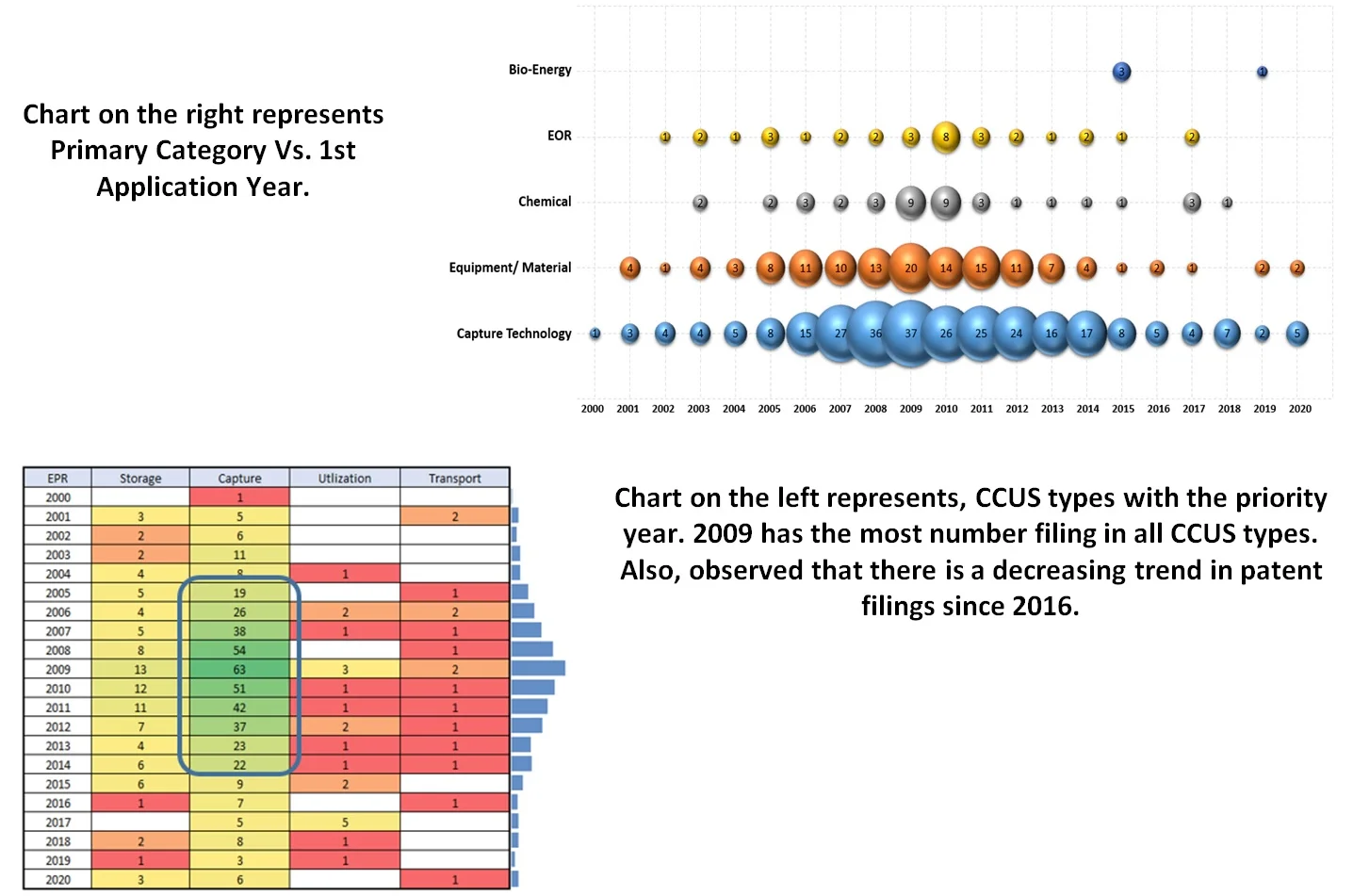Abstract
Capturing CO2 and preventing it from being released into the atmosphere was first suggested in 1977; using existing technology in new ways. CO2 capture technology has been used since the 1920s for separating CO2 sometimes found in natural gas reservoirs from the saleable methane gas. More recently, investment in CCS is being driven by the oil and gas industries as well as cement, iron and steel, and chemical production industries in the push for decarbonization. Once it is separated from other gases, the carbon dioxide is then compressed, transported, and injected underground for permanent storage. About 90-100 % of produced carbon dioxide can be captured in this manner. Many are betting on CCS as a key to greenhouse gas emission reductions, since leveraging CCS is expected to achieve 14-19 % of the reductions needed by 2050 (1,2,3). In 2020, we sent 40 billion metric tons (t) of carbon dioxide into Earth’s atmosphere. We need to cut that number to 0 by 2050 if we are to avoid the worst consequences of climate change, according to the Intergovernmental Panel on Climate Change (IPCC). The objectives of this paper is to present the patent landscape of Baltic sea region countries (BSR), which includes Lithuania, Latvia, Estonia, Finland, Denmark, Sweden, Russia, Poland and Norway. To perform the analysis searches have been conducted to identify patents related to Carbon capture and sequestration for the BSR. Patent analytics searches have been restricted to dates from 2000-2020. Technologies investigated mainly focuses on CO2 storage, monitoring, utilization and transport.
The patent analytics searches have been conducted to identify patents related to CCUS technology. The search resulted in 3299 patent families. A relevancy analysis was done to identify patents which are related to CCUS & resulted in 497 patent families. Identified relevant patents have been categorized in a classification scheme. Results of this patent analytics work shows that in 2009 we have the greatest number of IP activity for CCUS. Exponential growth in patent filing since 2005-2009, showing an increasing trend for CCUS activities, 2010-2015 has an exponential decreasing trend for CCUS activities. In northern and eastern Europe, Russia & Poland are leading the research & patent filing in the CCUS domain. From industry point of view General Electrics (GE)has the highest number of publications followed by Mitsubishi and Siemens. 85 % of 497 relevant Patent families are Alive. GE has around 78 % of its families alive. The top patents are related to capture, storage, sequestration or disposal of greenhouse gases and followed by patents related to separation processes. CO2 capture is the most explored technology/CCUS type along with storage. Unfortunately, there is a decreasing trend in patent filings since 2016. The CCUS technologies are striving to gain traction in the set of options for dealing with climate change, but growth is very slow due to absence or low intervention of government action on climate change, public scepticism, increasing costs, and advances in other options including renewables and shale gas.

References
-
A. Shogenova et al., “Carbon Neutral Baltic Sea Region by 2050: Myth or Reality?,” in SSRN Electronic Journal, 2021, https://doi.org/10.2139/ssrn.3817722
-
J. M. English and K. L. English, “An Overview of Carbon Capture and Storage and its Potential Role in the Energy Transition,” First Break, Vol. 40, No. 4, pp. 35–40, Apr. 2022, https://doi.org/10.3997/1365-2397.fb2022028
-
B. L. Salvi and S. Jindal, “Recent developments and challenges ahead in carbon capture and sequestration technologies,” SN Applied Sciences, Vol. 1, No. 8, pp. 1–20, Aug. 2019, https://doi.org/10.1007/s42452-019-0909-2
